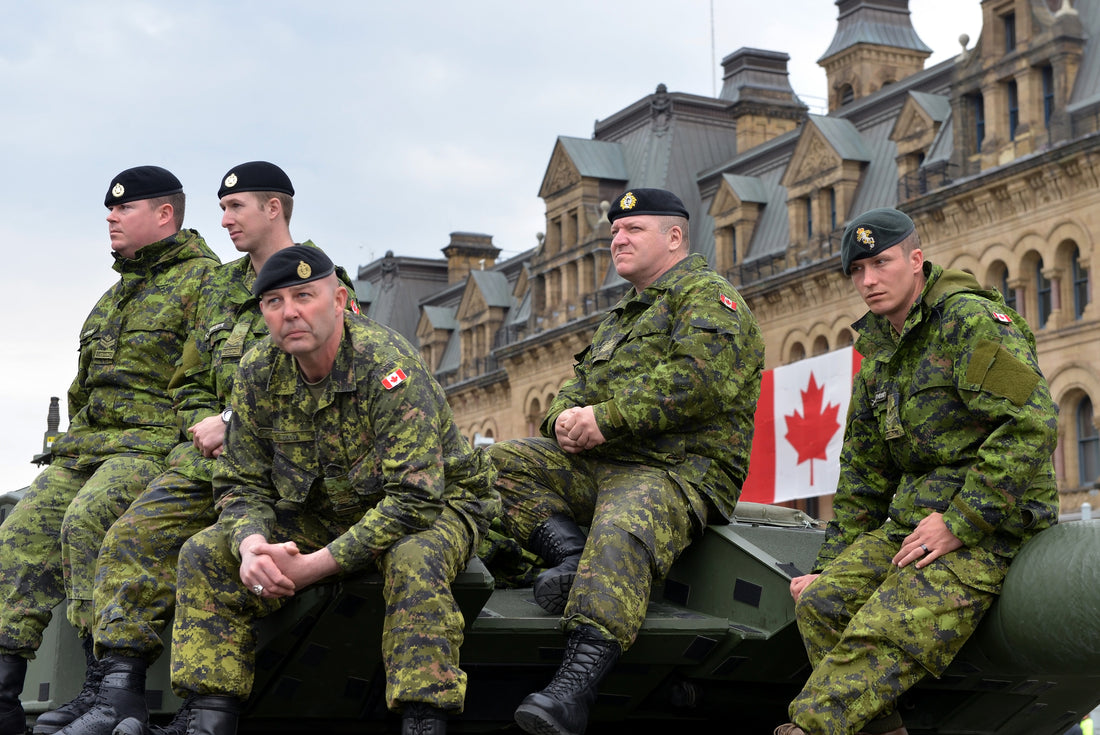
Thank Them For Their Service
Dr. Linda Hancock![]() Over the years I have signed contracts to provide therapy for British and Canadian soldiers as well as veterans. Because of this, I have become much more aware of the sacrifices made by the men and women who have fought to obtain and maintain freedom for us.
Over the years I have signed contracts to provide therapy for British and Canadian soldiers as well as veterans. Because of this, I have become much more aware of the sacrifices made by the men and women who have fought to obtain and maintain freedom for us.
Many service members experience situations that lead to life-long consequences:
1. PHYSICAL INJURY - Marching or walking for hours in poor conditions can result in knee and foot problems. Driving tanks can cause ongoing back and hip pain. Traumatic Brain Injury, loss of hearing and serious burns can occur when one is near explosions. Many members also lose arms, legs or other body parts during their tour of duty.
2. PSYCHOLOGICAL PROBLEMS - Post Traumatic Stress Disorder is often diagnosed after a person has been in a situation where s/he or someone they care about was in danger of being seriously harmed or dying. Depression, anxiety or sleep problems can also occur when military have been under significant stress. Survivor's guilt results when others are injured or die but you are safe and you can't figure out why you walked away unharmed.
3. LOSS OF RELATIONSHIP - When you are posted far from your family and friends, you miss out on being part of the routine at home. People change, children grow and you are not there to witness these things directly. Those who you have trusted and formed bonds with during your service may be transferred to another unit, seriously injured or killed.
4. DIFFICULTY TRANSITIONING HOME - Soldiers are trained to do things that are not compatible with life in North America. They have to sleep lightly, drive erratically and always be ready to attack. When they are discharged they might have exaggerated startle response, inability to sleep soundly, inappropriate aggression and problems with following traffic rules.
5. ADDICTIONS - Those who are prescribed some medications or pain killers after serious injury can become dependent on them. Some begin self-medicating with alcohol or illicit drugs as a way of forgetting horrific experiences that they may have had.
6. DEATH - Soldiers lose their comrades during battle. Families lose their loved ones while in service or by suicide when the mental or physical pain becomes too much for the one who has served.
7. RESOURCES - Accessing appropriate physical and mental treatment can be a challenge. Multiple tours of duty and the fact that there are so many wars going on in the world, have increased the need in North America for effective services. Knowing what is available, completing the necessary paperwork and waiting for approval can be very discouraging.
Each year on the eleventh day of the eleventh month at eleven o'clock we witness parades and hold Ceremonies of Remembrance to honour those who fought for us. They selflessly left what they had at home to risk their well-being so that we can enjoy peace. Their lives and ours will never be the same because of that!
I am thankful, not only for these men and women but also for people like Marilyn Croney of Veterans Affairs. She works diligently to ensure that the needs of those who served are heard and that resources are matched with those needs.
I am grateful that our Canadian government has set up financial programs to support the veterans. And I am thankful that I have the opportunity every week, not just on November 11th to work with the brave individuals who have and continue to selflessly serve our country.
I'll be honest, I wouldn't have the guts to do what they have done. Would you?
